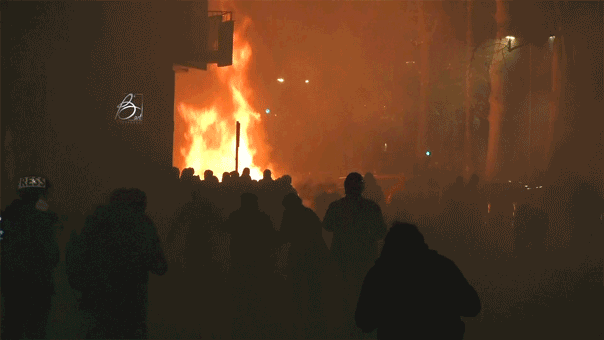Britain says China, Russia and Iran exploiting coroanvirus pandemic
Global concern rises over authoritarian countries coronavirus response; Benjamin Hall reports.
At a time when billions of people on the planet are struggling with the coronavirus pandemic and the ensuing economic collapse — on top of long-running disasters like famine, drought or social and civil unrest — some of the world’s largest government donors of humanitarian aid are buckling under the strain.
Funding commitments, for the virus and otherwise, have dropped by a third from the same period last year, according to analysis by the U.K.-based Development Initiatives, obtained in advance by The Associated Press.
The challenges remain vast as various streams of assistance, including remittances, falter. “All resources ... are set to fall,” according to a separate new Development Initiatives report.
CLICK HERE FOR COMPLETE CORONAVIRUS COVERAGE
During the first five months of this year, overall aid commitments from the largest government donors were $16.9 billion, down from $23.9 billion in the same period last year, according to the new analysis, which drew on data from the United States, the United Kingdom, European Union institutions, Germany, France, Canada and others.
Many of these donors — notably the U.K., whose aid commitments have dropped by nearly 50 percent from last year, according to the analysis — are struggling as their economies contract. The sheer magnitude of the crisis is another challenge as every part of the world needs help — and now.
The U.K. on Wednesday signaled more trouble, announcing it had identified $3.6 billion in cuts to planned overseas aid spending “so that we can react to the potential shrinkage in our economy.”
The reality on the ground could be even worse than the new analysis indicates: Crucially, it only shows promises of aid. Just how much of the billions of dollars pledged have reached those in need is not yet clear.
In some cases, the response to the pandemic has been alarmingly slow. In June, more than two dozen international aid groups wrote to the U.S. about its pledged coronavirus aid, saying that “little to no U.S. humanitarian assistance has reached those on the front lines” and calling the uncharacteristic delays “devastating.”
Their letter came as the U.S. promoted global leadership on the COVID-19 response with more than $1 billion committed. Aid groups are now waiting to see whether the U.S. will deliver millions of dollars this month as indicated.
This new analysis, like any measure of aid, is imperfect — it looks at data published to the International Aid Transparency Initiative, which is voluntary but widely used. It is also more current than other measures: The data was downloaded on July 10.
The drop in funding is keenly felt by aid groups on the ground.
CLICK HERE TO GET THE FOX NEWS APP
Last week, the United Nations again increased its request for the pandemic response alone to $10.3 billion — the largest appeal in its history.
Only $1.7 billion has been received. Up to $40 billion might be needed.
“The response of wealthy nations so far has been grossly inadequate and dangerously short-sighted,” U.N. humanitarian chief Mark Lowcock said. “Failure to act now will leave the virus free to circle ’round the globe.”
The Associated Press contributed to this report.










































